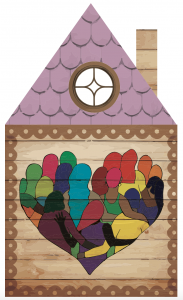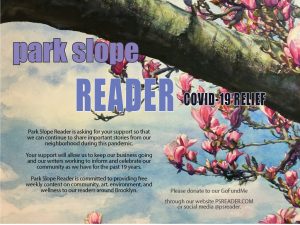
A few months after my 15-year marriage ended back in 2008, I hired a clown and part-time muralist to paint a large white luster quote across the navy wall of my Prospect Heights dining room.
“Sell your cleverness,” it read, “and buy bewilderment.”
The quote was by Rumi, the 13th-century poet and mystic, and to my great surprise, it suited me. Finding myself without a fixed storyline as a 46 year old mother of two girls was hands-down terrifying.
And at the same time the message bought me a kind of freedom. My bewilderment was the result of a deeply painful and unexpected letting go, to be sure — but also offered a vigorous shake-down of set assumptions and beliefs, and the opportunity to now say yes to ideas I might never before have seriously entertained.
Slowly, I began to enjoy sleeping diagonally across the bed and sitting in bars alone with a book and a cocktail.
When an old friend called from Chicago to ask if I’d be interested in flying to Melbourne, Australia for a few weeks to serve as the media liaison for the largest gathering of spiritual leaders in the world, I said yes. When, a few months after that, a journalism school classmate reached out from from Bangalore, India to suggest I spend a month volunteering at a remarkable boarding school near him called Shanti Bhavan, I wrote to the school and was on my way six weeks later.
When an acquaintance raved about her recent “divination” with a West African spiritual elder, I booked a session with him myself. A week later, Malidoma Some was seated across a table from me. “You must make yourself like a cottage,” he instructed. “You must create a new sense of home and power and belonging. And from there, you’ll be given the opportunity to contemplate how to help others view their circumstances not from a reckless, tragic perspective but from an initiatory one.”
That made a lot of sense. So (but of course!) I set about following Malidoma’s advice. On the nights that my two daughters were staying with their father a mile away from me in Park Slope, I turned my Sterling Place brownstone into a “Brooklyn cottage.” And for the next four years, my home served as a part-time lab and incubator for writing workshops and storytelling evenings and cooking classes and meditation sessions and pop-up art shows and any other intriguing notions that I or various members of my community were interested in exploring.
In the middle of all this, I realized I was still lonely post-divorce. I wanted to unearth a tribe of women who were walking a path similar to mine. How could I find them? In the context of what I’d created, it seemed the most natural thing in the world to sit down and craft a curriculum for the very thing I was missing. So even though I wasn’t a therapist and had never before been a workshop leader, I set about saying yes to that, too.
The Nigerian writer Chris Abani has described the South African philosophy of Ubuntu this way: “The only way for me to be human is for you to reflect my humanity back at me.”
So through writing experiments, sharing stories, poetry, riutals and bearing witness, it was my plan for these workshops to gently and courageously explore ideas of grief and ideas of gratitude.”
I wanted a workshop where we could be human together.
I’ve also come to strongly believe that our capacity to know unbridled joy is directly proportion to our willingness to grieve as necessary. So through writing experiments, sharing stories, poetry, riutals and bearing witness, it was my plan for these workshops to gently and courageously explore ideas of grief and ideas of gratitude.
After our introductions, I imagined us each taking pens to paper and writing for several minutes, beginning every sentence with the words “I mourn” or “I surrender.” (If nothing came up, we’d simply write those words as if they were a kind of incantation, until something did.)
I envisioned next sharing photos, and stories, of ourselves together with the person we were separating from — giving voice and name and texture, along with tears and laughter and grimacing as necessary, to what was.
And finally, I imagined a return to our notebooks to investigate what there was to be grateful for. Every sentence we’d write would begin with the words “thank you” (to the departing partner, to the universe, to oneself, to whatever or whomever seemed to suit us at the moment). And as before, we’d simply see what came up.
So I put my idea into play. And that was five years ago! I’ve been leading Grief and Gratitude workshops several times a year since, to a total of about 300 women to date. The workshops are still sometimes run out of my living room on Sterling Place, sometimes run in private living rooms around the city (and possibly soon upstate), and mostly run in the living room of the wonderful Elise Pettus at UnTied.net in Brooklyn Heights.
Even though I feel well-healed from my own marital split decade ago now, I find it a continuing privilege to meet with women at the poignant and painful and often strangely promising moment they find themselves in the middle of theirs. Why? Because I’ve come to believe that that the broken heart is the starting point for everything that matters. It’s what happens in the days, weeks and months after life brings us to our knees that remains deeply interesting me.
As I find myself writing at a recent Grief and Gratitude workshop: “The mourning permits the surrender, the surrender permits humility, the humility permits grace and the ability to be present for others and for myself. I accept mourning as part of what makes my life valuable and true. I mourn and I rejoice.”
Learn more about The Brooklyn Cottage HERE

